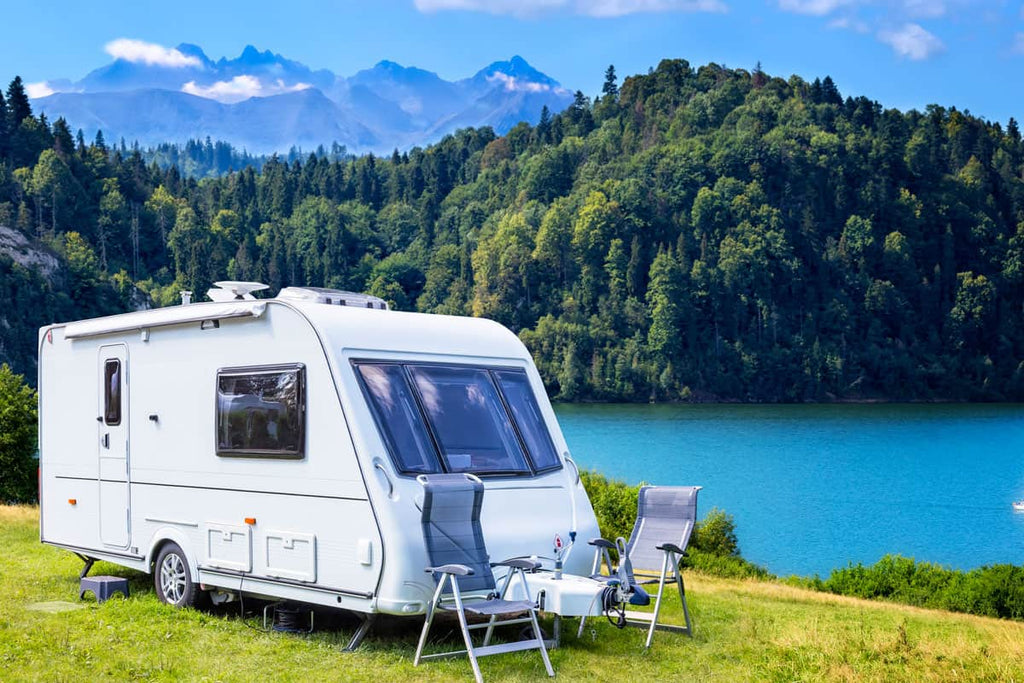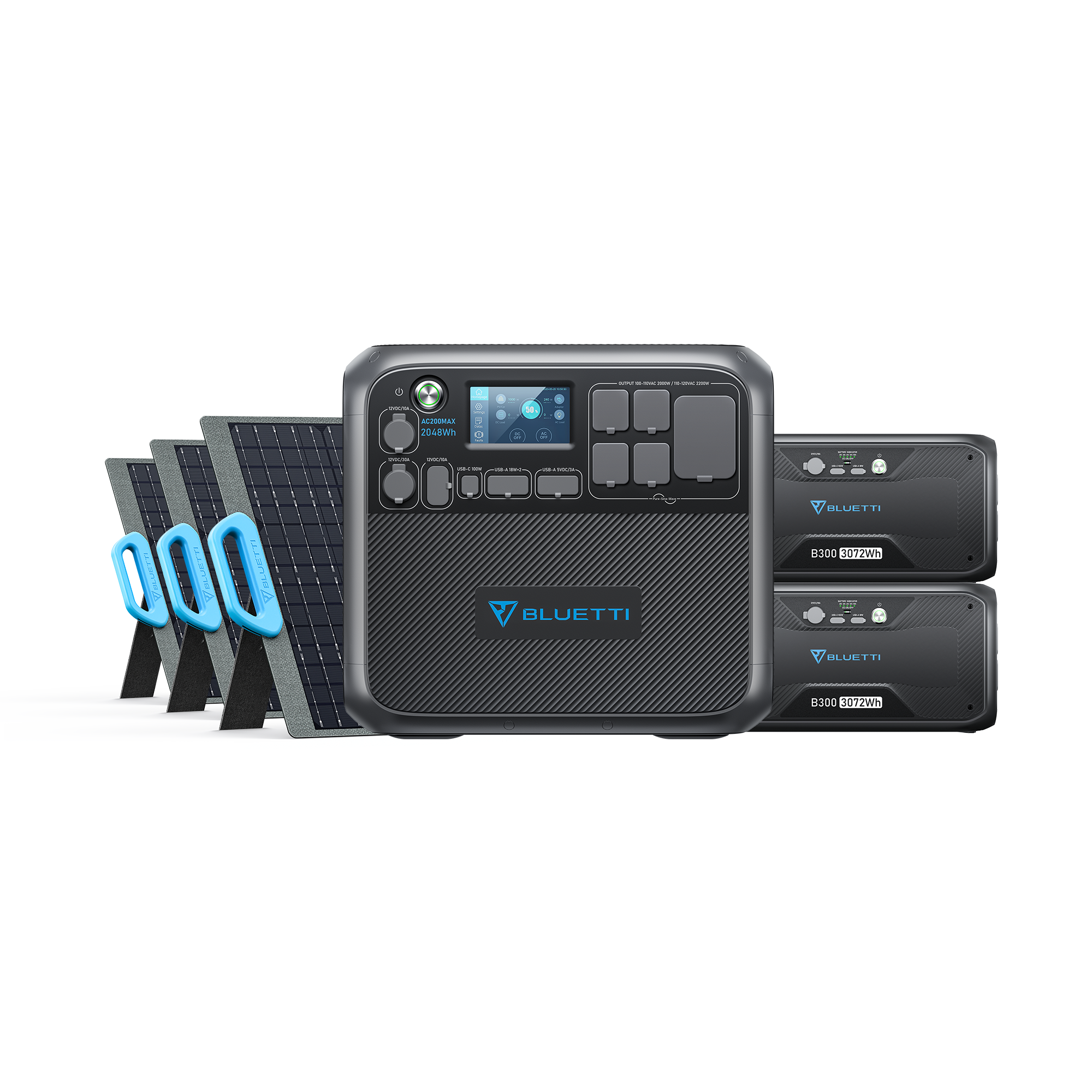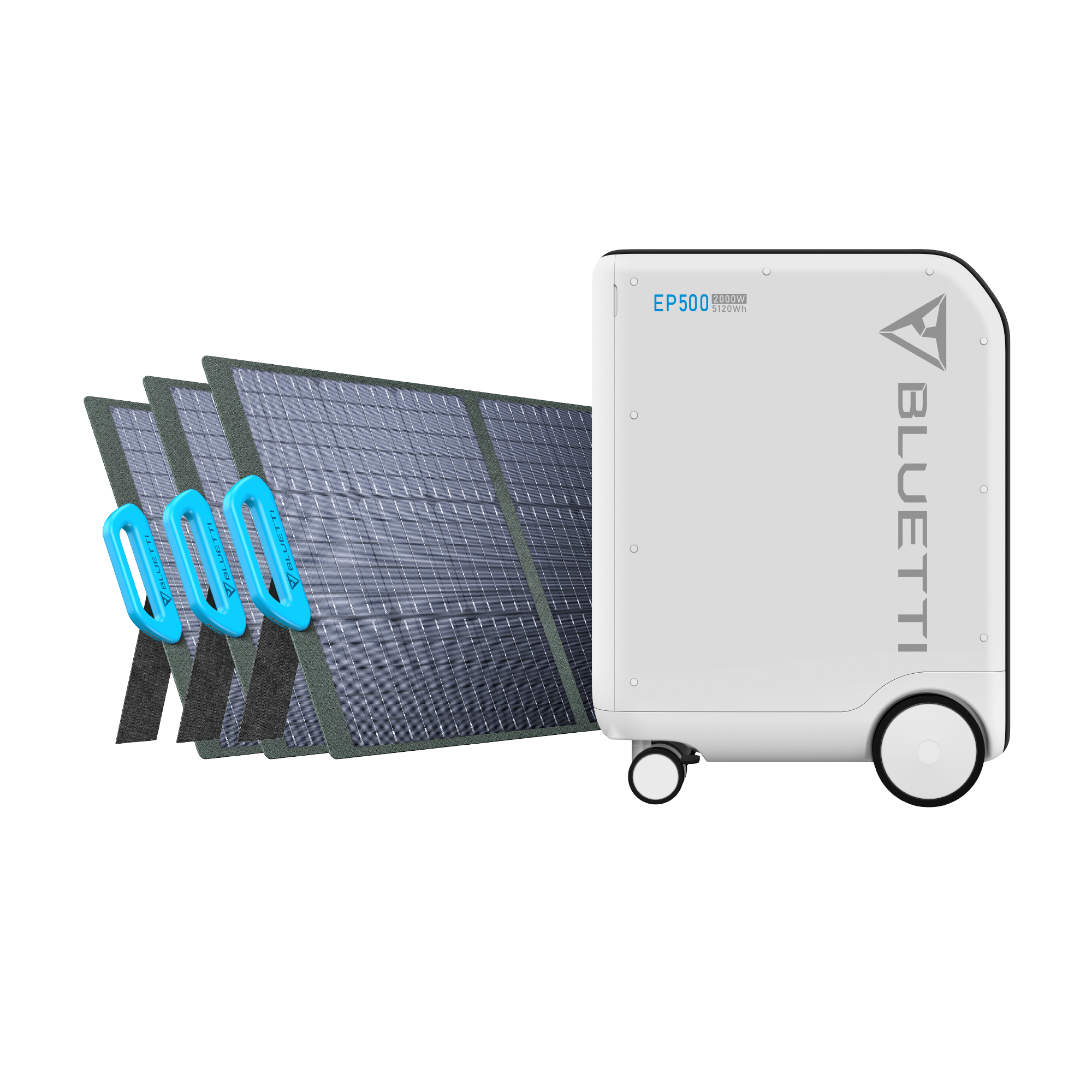Your cart is empty
Shop our productsFrom electric vehicles to paper straws, we see an eco-friendly lifestyle slowly becoming a part of our daily lifestyle. We are all turning our houses greener. Why not our RVs, too?
Whether you are RVing to take a break from your routine and take comfort in the picturesque nature or to try out the #vanLife lifestyle, that RV is going to be your cozy home on wheels for a while. Try harnessing solar energy to make your RV more nature-friendly the next time you hit the roads. This guide will tell you everything you need to know while buying a new solar generator for your RV.
What is a Solar Generator?
Simply put, it is an RV generator that runs on solar power. You can imagine the roof of your RV covered with solar panels, although this is not how all solar generators work.
These panels generate solar energy from sunlight and fill the generator with solar power. This, in turn, can be used to run several appliances.
Advantages of Using Solar Generators

- The first obvious merit is that it is eco-friendly. You don’t have to worry about CO2 emissions, which is a huge and serious drawback of conventional generators.
- You can save money on fuel. The sun doesn’t charge money.
- It’s reliable, portable, and easy to handle and maintain.
- They last longer than fuel-powered generators. It is a good investment for the long term.
- You can simply attach batteries or more panels to increase the power available to you based on your needs.
- They are quiet and odor-free. You can spend quality time outdoors without the annoying buzz of a generator.
- The latest solar generators are also quick to recharge. Some also come with wall chargers in addition to solar panels so that you are not dependent only on the sun.
How Big of a Solar Generator Do You Need?
Camping is a chance to unplug from the hustle of daily life and simply chill in your own way. But finding out that your generator ran out of power after running the stove and refrigerator for a couple of hours can simply ruin it. A bit of advance preparation won’t hurt. You should pick the right generator that fits like a glove for your RV and your appliances. Let’s find it.
1. What Kind of RV Do You Have?

RVs come in all sizes and shapes. You could own a fifth-wheel, class-A motorhome, or a tiny trailer. This question is important to consider because larger RVs need more watts as they usually come with one or more ACs, refrigerators, etc. A significant limitation of solar generators is their wattage. With extra batteries and solar panels, you can get a maximum wattage of around 6,000 Wh. That will not be enough to meet the requirements of a larger RV or a 50-amp RV. If you use a smaller generator for larger needs, the generator will run out of power faster and get overloaded. In the worst-case scenario, it can also be a safety hazard, as it can potentially damage the electrical system in your RV. Solar generators can be used as a backup to fuel-based generators in that case.
Solar generators like this are much more useful in class-B or class-C vans. With additional batteries, you can even use it for a fifth wheel or a class-A RV, but you will have to be pretty modest when it comes to using your appliances.
2. What Appliances Do You Want to Run?
The wattage requirement of your devices is the main question you need to find the answer to while picking any kind of generator.
If you have already camped before, you probably know what appliances you need and for how long. If you are about to camp for the first time, try to find out the wattage of every device you intend to carry with you. Some examples are:
|
Phone charger: |
2-10 W |
|
Coffee maker: |
600 W |
|
DVD player: |
350 W |
|
Electric Frying Pan: |
1,000-1,500 W |
|
Lights: |
40-100 W |
|
Portable fan: |
120 W |
|
A/C: |
1,400-2,400 W |
A sum of all this (in this case, approx. 5,000 W) would give you your total wattage requirement. High-wattage appliances like the air conditioner will quickly drain the stored power supply. Such appliances should be used for a short time. (In case you are unable to find the wattage of your appliances, most product sites should have information on what devices can be run on their generators and for how long each of them can be run.)
Some appliances also require high power to start. That is called surge watt. This is true for devices with compressors, like hair dryers or refrigerators. If you don’t account for this, the sudden power surge may break the generator. Here is an example: the starting watt of a camp refrigerator is 600 W, and its running watt is 180 W. To run this along with a coffee maker and phone charger, you will need around 790 running watts. But to account for the power surge, you should look for a generator that supplies about 1,200 W.
The maximum power you need also depends on how long you run the appliances and whether you will use more than 1 appliance at a time.
3. Other Questions to Ask:
- Do you want to use it only for your RVs, or do you also want to use it to supply power in other places?
Some solar generators can double as your power backup for your house, for instance. In such cases, factor in the appliances you might want to keep running there.
- Are you opting for solar panels to save money?
Whether solar generators are very cost-effective is debatable. For example, if you are boondocking in Inn Town, Nevada, you can get a quick and cheap power supply from the hookups there. A solar generator may not be the best option, even if it is a good investment.
- Are you planning on camping in extreme locations?
Obviously, solar generators are not very reliable in cloudy or rainy places. You can use solar generators like BLUETTI’s AC180/P if there is less sunlight, as they charge quickly. It needs a little time to reach full power and will last longer if your appliance usage is lower. While solar panels need sunlight, excessive heat is detrimental to their functioning. BLUETTI’s AC200MAX can operate efficiently even when the temperature is as high as 40°C. In the case of many other generators, there can be a significant loss in the amount of power the solar panels can generate, depending on the weather conditions.
- Do you want to use it as your backup power supply or your main power source?
A smaller generator will do if you only need it as a backup. You need bigger ones if you need an uninterrupted power supply from solar alone or if you own a bigger RV.
4. Checklist Before Buying Your Solar Generator
Once you have figured out what the capacity of your ideal generator should be, there are other features you can look out for to narrow down your options further.
- Size or portability
- Charging time
- User-friendly display to monitor the generator’s status
- Weather resistance
- Overload protection
- Number of charge cycles.
- Number of outlets or ports for your appliances
- Alternative methods to charge the generator besides solar panels
- Wattage and conversion efficiency of solar panels
- Availability of an app to monitor and control features
- Scalability of the generator
- Pass-through charging
- Warranty
While not all of these specifications are strictly necessary for your generator, some can make your life easier.
Related articles: What Size Solar Panel Do I Need to Keep RV Battery Charged?
How Much Is an RV to Rent, or Buy?
What Size RV Solar Panel Kit Is Enough to Power Your Adventure?
BLUETTI Solar Generator for Your RV
BLUETTI AC200P + 3*PV200
This solar generator kit includes 3 foldable solar panels along with a 2,000 W inverter that has a surge capacity of 4,800 W for $ 2,499. It has 13 different outlets for many of your devices. There are more than 5 ways to recharge this inverter, and it can reach more than 80% power within 3 hours if you use both solar panels and AC adapter. You can run an electric grill for over an hour and your refrigerator for 2+ hours with this battery.
BLUETTI AC200MAX + 2*B230 + 3*PV200
This solar generator kit includes 2 BLUETTI B230 batteries, 3 solar panels, and a 2,200 W inverter for $6,944. This inverter is also compatible with BLUETTI B300, which it can offer a battery capacity of up to 8,000 Wh.
You can run your air conditioner for up to 14 hours and a 1,200 W refrigerator for more than 30 hours. With 16 outlets, this solar generator can handle many of your devices with ease. You can dual charge it with the solar panels as well as a wall outlet and have it fully charged in approximately 2 hours.
BLUETTI EP500 + 3*PV200
This solar generator kit comes with a 5,120 Wh battery and 3 PV200 solar panels for as low as $ 4,896. It has 15 outlets to use many heavy devices simultaneously at your RV as well as your home. It has 2 wireless charging pads and a built-in microcomputer and internet connection.
This smart solar generator can maintain over 50% battery capacity even after 6,000+ cycles. It has a user-friendly touchscreen with which users can check the status of the inverter via Bluetooth. You can run your microwave oven for more than 4 hours, your washing machine for over 8 hours, and your space heater for close to 3 hours.
Frequently Asked Questions (FAQs)
1. What is there in a solar kit?
A typical BLUETTI solar generator kit has a power station, solar panels, and charging cables.
2. Can I use the BLUETTI AC200P while charging it?
BLUETTI AC200P is a great product that can be used while charging as well.
3. Are solar generators loud?
Solar generators barely produce any noise and are not loud.
4. Can I buy a solar panel separately and attach it to my generator?
You can buy solar panels separately and attach them to the generator. But you need to make sure that they are compatible.
5. Do BLUETTI solar panels need to be installed on the roof?
Not necessarily. You can install the solar panels as per your preference.
6. Are portable solar panels effective?
They are more convenient than fixed panels because you can position them to get the maximum sunlight, and you don’t have to worry about parking your car in the shade. There is no installation process; you just unfold them and place them on the ground.
Final Thoughts
With the rising popularity of solar-powered systems, you are drowning in a sea of options that make you second-guess every time you settle on a particular generator. The size of your solar generator depends on how many appliances you carry, how you intend to use them, and, more importantly, your priorities. How do you want to use it? This will filter out most options for you. If you have fewer devices or a smaller RV, use a 2,000 Wh generator. If you have many appliances, choose a 4,000 Wh generator. If you have a bigger RV with multiple high-power appliances, find a solar generator that can supply up to 6,000 Wh or more. To conclude, bigger wattage requirements need bigger generators.
Shop products from this article
You May Also Like

What Does a 30% Federal Solar Tax Credit Mean and How to Apply?
Governments around the world are offering programs that encourage homeowners to switch to solar energy. Among the most notable programs is the 30% Federal Solar Tax Credit. It reduces your...

Deadly Flooding Devastates U.S. South and Midwest — What You Need to Know





















































































































































































































































